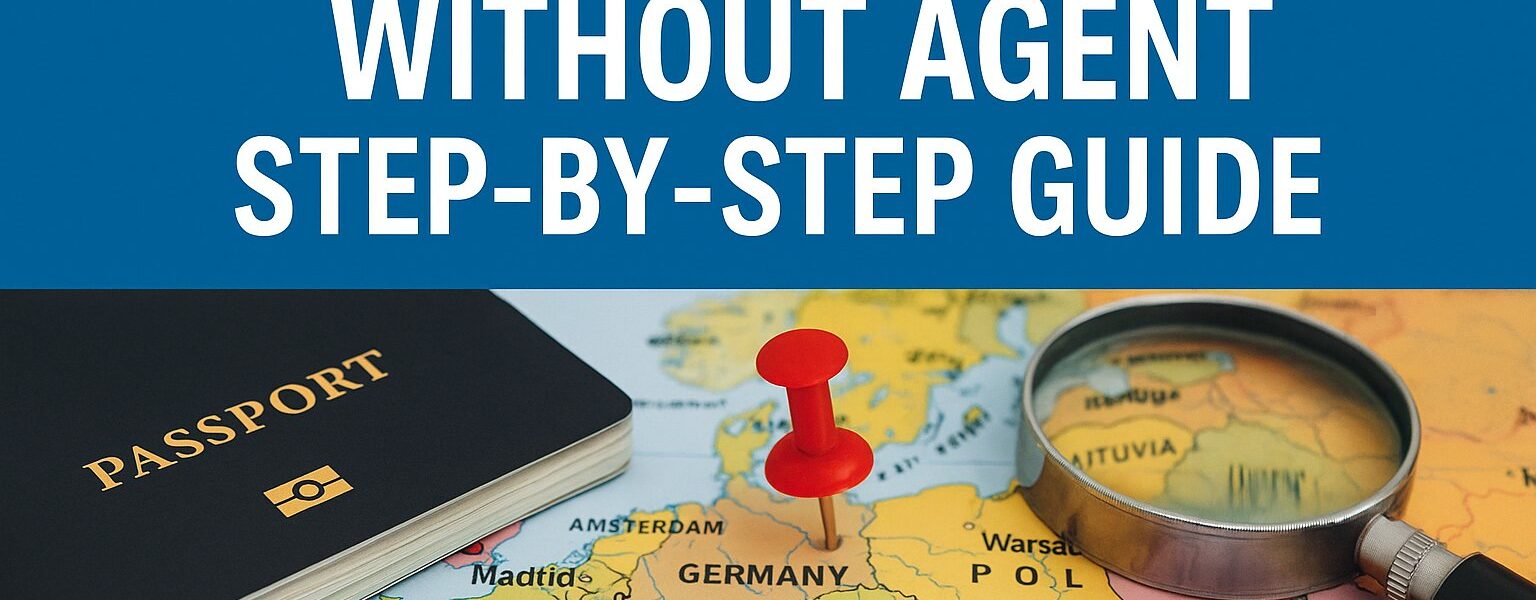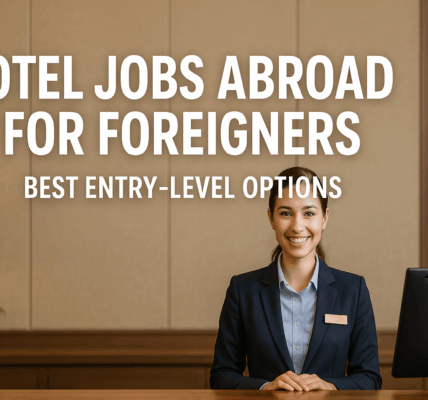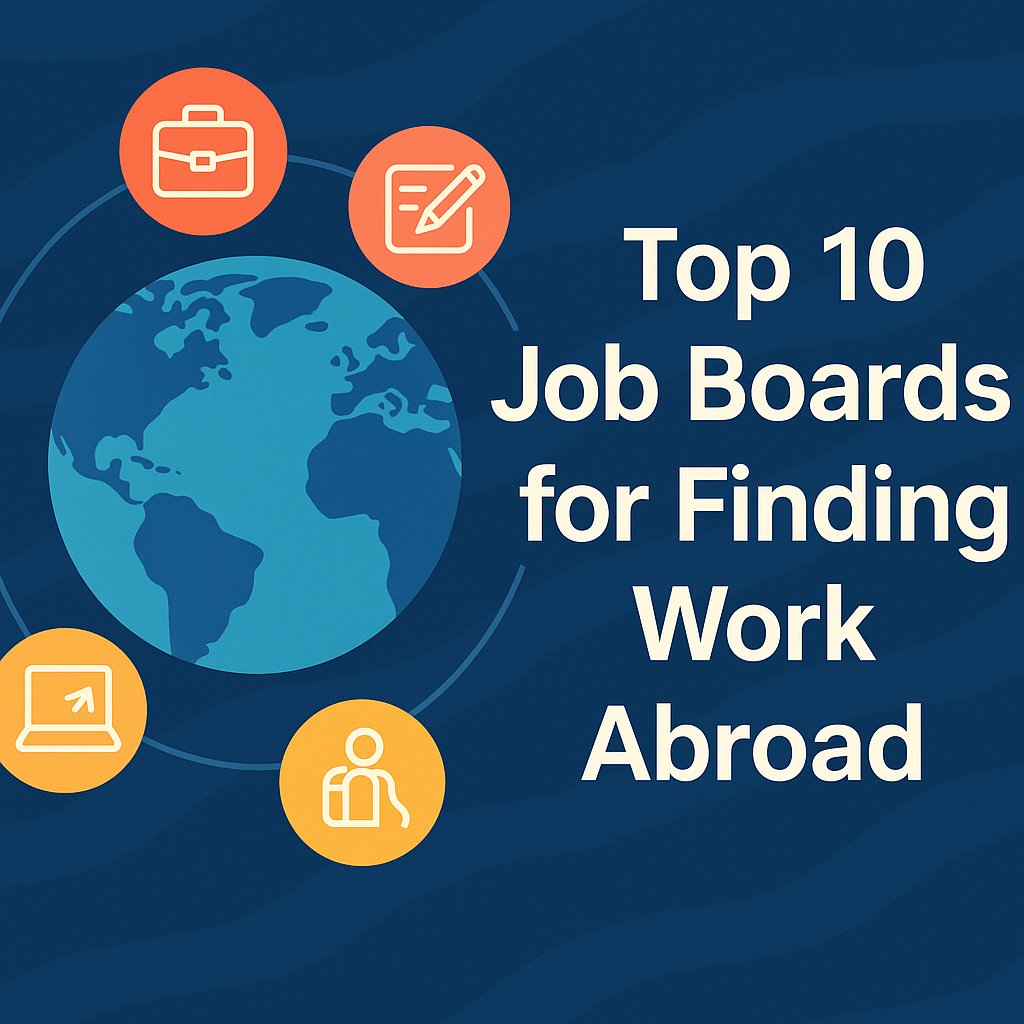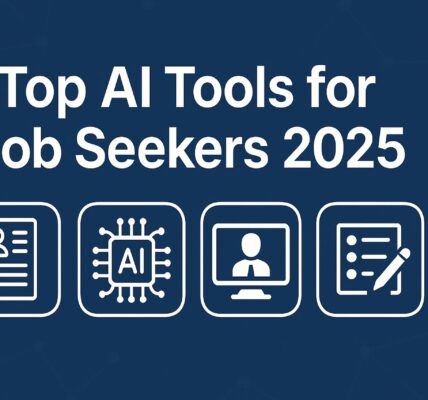How to Work Abroad Without Agent – Step-by-Step Guide
Are you dreaming of an international job but don’t want to pay hefty agent fees? You’re not alone. Many people are now taking the smart route—learning how to apply for jobs overseas yourself. With the rise of legit job portals and transparent hiring systems, it’s easier than ever to work abroad without an agent.
In this guide, I’ll walk you through how to confidently search, apply, and land a job abroad by yourself, without relying on any agency. You’ll learn where to look, how to avoid scams, and what you need to prepare depending on the country you’re targeting—whether it’s the UAE, Germany, Australia, or Canada.
Why Avoid Job Agents When Seeking Overseas Employment?
Working abroad can be life-changing, but it’s important to do it right. While some agents are legit, many charge unnecessary fees or push candidates into jobs that don’t match their skills.
Reasons to find a job abroad without an agent:
- Save thousands in fees (some agents charge up to $5,000!)
- Direct communication with employers
- Higher job transparency
- Better control over your visa process and work terms
Step-by-Step: How to Work Abroad Without an Agent
Let’s break down how to apply for jobs overseas yourself, with a focus on legit platforms and practical steps you can start today.
Step 1: Choose Your Destination Country
Before anything else, pick a country where your skills are in demand and where immigration laws allow foreign workers.
Hot destinations for foreign workers:
- UAE: Hospitality, construction, logistics
- Germany: IT, engineering, healthcare
- Australia: Skilled trades, healthcare, agriculture
- Canada: Truck drivers, cooks, caregivers, warehouse workers
Step 2: Find Trusted Job Search Platforms
One of the best ways to apply for overseas jobs yourself is to use official job portals and international job boards. Here are the top websites by region:
🌍 Global Job Portals
- Indeed Worldwide – www.indeed.com/worldwide
- LinkedIn Jobs – Strong for professionals and skilled workers
- Glassdoor – Great for researching companies
- WorkAbroad.ph – Focused on Filipino jobseekers but useful for others too
🇨🇦 Canada
- Job Bank Canada – www.jobbank.gc.ca
- Indeed Canada
- Polo/Tie-up employer lists (for Filipinos): www.dmw.gov.ph
🇦🇺 Australia
- Seek – www.seek.com.au
- JobSearch.gov.au – Government job portal
🇩🇪 Germany
- Make It in Germany – www.make-it-in-germany.com
- EURES – Jobs across Europe: ec.europa.eu/eures
🇦🇪 UAE
- Bayt.com
- Naukri Gulf
- Dubizzle Jobs (local listings)
✅ TIP: Always double-check if the company offers visa sponsorship. Use keywords like “visa sponsorship,” “foreign applicants welcome,” or “international hiring.”
Step 3: Build a Country-Specific CV and Cover Letter
Each country has different CV/resume standards. To stand out, tailor your CV and cover letter using local formats and include only relevant experience.
Examples:
- Germany: Include a professional photo and detailed experience (no fluff)
- Canada: 1-2 page resume, no photo, action verbs and measurable results
- UAE: CVs with photos are common, emphasize language skills and experience abroad
Step 4: Apply Directly and Follow Up
When you apply for a job abroad without an agent, it’s important to take initiative.
- Apply through official company websites or legit portals
- Keep a record of each application
- Follow up via email or LinkedIn to show interest
Step 5: Prepare for Online Interviews
Since you’re applying from abroad, most interviews will be done via Zoom, Google Meet, or Skype.
Preparation tips:
- Test your internet and camera setup
- Dress professionally (even if it’s remote)
- Research the company thoroughly
Step 6: Understand Visa Requirements (Per Country)
Every country has different visa pathways. Here are simplified examples for some popular destinations:
🇨🇦 Canada – Temporary Foreign Worker Program (TFWP)
- Requires a valid job offer
- Employer may need LMIA approval
- Some jobs (agriculture, caregiving, trades) are high-demand
🇦🇺 Australia – Skilled Visa (Subclass 482 or 189)
- Must be on the Skilled Occupation List
- Some jobs require licensing (e.g., electricians)
- Work experience and English test usually required
🇩🇪 Germany – Job Seeker Visa or EU Blue Card
- Need a recognized degree or skilled trade
- Must prove sufficient funds and health insurance
- German language is a plus, but not always required
🇦🇪 UAE – Employment Visa
- Typically arranged by employer
- No language test required
- Beware of fake job offers promising free visa
Red Flags: How to Avoid Job Scams Abroad
Sadly, many job seekers are lured by fake agents or scams. If you want to apply for overseas jobs yourself, always stay alert.
Watch out for these red flags:
- Upfront payments for interviews, visas, or contracts
- No company website or contact details
- “Too good to be true” salary offers
- Poor grammar or unprofessional emails
✅ Real employers don’t ask you to pay them. You’re the worker, not the customer.
Bonus Tips for Applying for Overseas Jobs Yourself
- Join Facebook or WhatsApp groups focused on working abroad (e.g., “Jobs in Germany for Foreigners”)
- Network on LinkedIn with recruiters in your target country
- Use ChatGPT or other AI tools to refine your resume and cover letter for each country
- Consider getting your credentials assessed if applying to regulated professions (e.g., nurses in Canada)
Final Thoughts: You Can Work Abroad Without an Agent
You don’t need to pay thousands to get a job overseas. With the right tools and guidance, you can work abroad without an agent and take full control of your future.
Start with trusted job portals, avoid scams, prepare strong applications, and learn the visa requirements of your target country. This route might take more effort, but it’s safer, more affordable, and ultimately more empowering.






1 COMMENTS
Comments are closed.